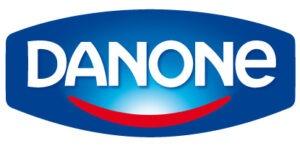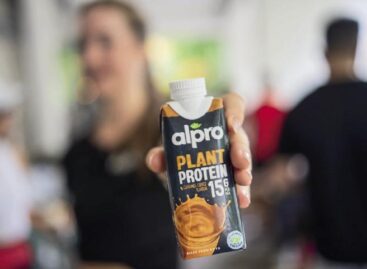Danone partners with Maersk to lower ocean logistics emissions
The French dairy major will leverage Maersk’s ECO Delivery Ocean service, a “sustainable shipping solution” powered by reduced-GHG-emission fuels.

Danone has joined forces with shipping and logistics giant Maersk in an attempt to cut greenhouse gas (GHG) emissions from its ocean freight operations.
As part of the collaboration, the French dairy major will leverage Maersk’s ECO Delivery Ocean service, a “sustainable shipping solution” powered by reduced-GHG-emission fuels such as biodiesel and bio-methanol.
These fuels, produced from waste feedstocks, can reduce GHG emissions by up to 40% compared to traditional fossil fuels, according to Maersk.
Danone global chief procurement officer Jean-Yves Krummenacher said: “We are happy to partner with Maersk through Danone’s Partner for Growth programme.
“The ECO Delivery Ocean product and its reduced greenhouse gas emissions align well with our decarbonisation strategy to focus primarily on alternative fuels and multi-modal transportation. Maersk is an important partner and using their product to reduce CO2 emissions on sea freight marks yet another step in our decarbonisation journey.”
The alliance with Maersk will extend beyond ocean transport, encompassing inland transport solutions and control towers to ensure “smooth” logistics operations.
Danone has set a target for zero net carbon emissions by 2050, a goal that aligns with the industry standard Science-Based Targets initiative (SBTi).
The plan is for that target to be achieved across its full scope, including agriculture.
Danone’s brands, such as Activia and Actimel, are charged with cutting carbon intensity by 50% from 2015 to 2030 and to start reducing emissions in absolute terms before 2025.
In the third quarter of 2024, Danone posted a 4.2% rise in third-quarter like-for-like sales to €6.826bn ($7.36bn). The growth was fueled by strong performances in North America, as well as the China, North Asia and Oceania regions.
Looking ahead, the company has reaffirmed its full-year outlook, expecting like-for-like sales growth to fall within the range of 3% to 5%.
Just Food
Related news
High-protein products are taking over
🎧 Hallgasd a cikket: Lejátszás Szünet Folytatás Leállítás Nyelv: Auto…
Read more >Related news
Affordable luxury, forgivable indulgence
🎧 Hallgasd a cikket: Lejátszás Szünet Folytatás Leállítás Nyelv: Auto…
Read more >







